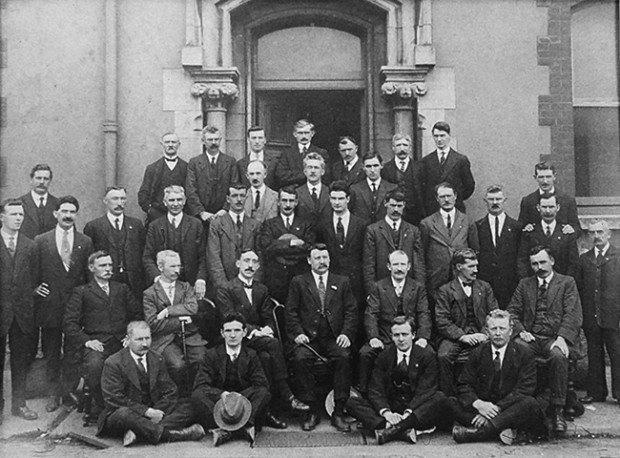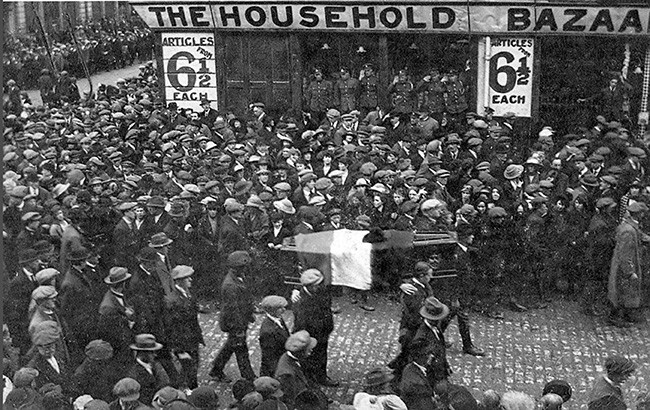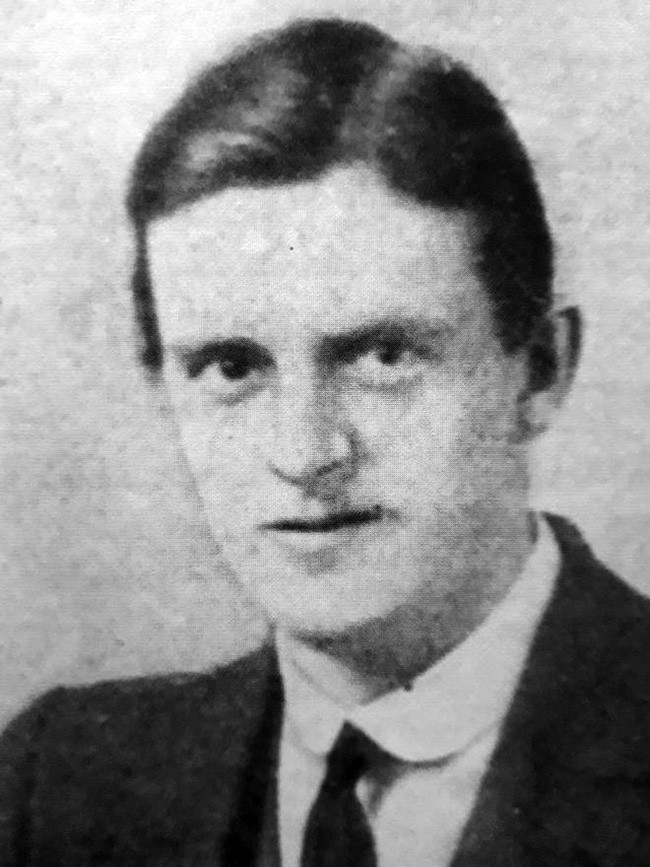1 May 2019 Edition
The Limerick Soviet, the Democratic Programme and building a new Ireland

• Limerick United Trades and Labour Council, 1919
Firstly, I want to congratulate the Limerick Council of Trade Unions, SIPTU and the Limerick Soviet 100 Committee for putting together a very comprehensive programme of events to mark the one-hundredth anniversary of the Limerick Soviet.
The centenaries of the April 15th to 27th general strike against British military power in Limerick, and the ratification of the Democratic Programme by the first Dáil weeks earlier affords an opportunity today to reclaim a vision of a better Ireland.
It is a vision that does not view everything as a commodity to be traded for profit; does not see people merely as labour units or consumers and does not sacrifice social needs to the workings of a financialised economy within which the dictates and whims of the bond markets reign supreme.
On a personal level, I am particularly proud of the role played by my own forebears in these events. Both my great grandfather Stephen Kennedy and my great gran uncle Dominick Kennedy were involved in the General Strike. Dominick was also involved in the attempted rescue of Robert Byrne, the Limerick Trade Unionist and IRA leader. Unfortunately, Bobby Byrne was shot by the RIC in the rescue attempt at the Workhouse Hospital, now Saint Camillus Hospital. He died later that night from his wounds in a cottage in nearby Meelick.
In boldly confronting an arrogant, contemptuous and battle-hardened British military, the workers of Limerick, led by the Limerick United Trades and Labour Council, were putting themselves at considerable risk. On April 13th, two days before the strike began, British Indian Army troops had carried out the infamous Amritsar Massacre in which at least 379 people were killed and another 1,200 wounded while engaged in a peaceful festive assembly.
In the following years, the British Government unleashed a campaign of terror against the Irish people in a frantic effort to suppress the republican struggle for Irish independence. On the night of March 7th 1921, the then Mayor of Limerick, George Clancy, his predecessor Michael O’Callaghan and a young man called Joseph O’Donoghue fell victim to the British death squads, like so many others throughout our country.
The ideals and vision that inspired the people of Ireland in their seemingly unequal struggle against the then mighty British Empire are succinctly and unforgettably set out in the Democratic Programme adopted at the inaugural meeting of the first Dáil Éireann on 21st January 1919.

• The funeral of Limerick Trade Unionist and IRA leader Robert ‘Bobby’ Byrnes (below)

This programme, heavily influenced by the labour movement, took its cue from the 1916 Proclamation. It envisioned an Ireland in which the “first duty of the Government of the Republic” would be “to make provision for the physical, mental and spiritual well-being of the children, to secure that no child shall suffer hunger or cold from lack of food, clothing or shelter”. The programme also pointed to the necessity of abolishing the “odious, degrading” British Poor Law System and its replacement with one that was caring, compassionate and mindful of human dignity.
It specifically referenced the duty of the state to take measures “as will safeguard the health of the people”. The programme also set forth as a further duty the development of the country’s natural resources “in the interests and for the benefit of the Irish people”. Had this progressive and humane document been taken in any way seriously by those who assumed power in Ireland then the country may very well have turned out a much better place than was the case.
The 26-County Irish state that came into being in 1922 has fallen well short of the vision of the Democratic Programme. For decades, a huge proportion of its people endured the rigours of poverty, mass unemployment and emigration, bad housing, poor health and social services and a grossly imbalanced system of regional development. Even when wealth and affluence did eventually become a reality, much of it was frittered away in an orgy of profiteering, speculation and corruption.
While it is often boasted that Ireland is now one of the richest countries in the world, this clearly is not reflected in the lives of a great many of its people. Rather, what stands out is a chronic crisis in housing and health, poorly paid and precarious employment, the hollowing out of public services and heightened levels of disillusionment, despair and social alienation.
While the political and economic elite at the top of Irish society – aided and abetted by much of the mass media – worship at the altar of a neo-liberal economic orthodoxy that champions the creation of great wealth for the few, many others yearn for a secure home, a reasonably paid job and some security and dignity in their everyday lives. This was the vision of those who heroically struggled against the British Empire.
The greatest tribute that could be paid to the memory of the Limerick workers of 1919 and the framers of the Democratic Programme is to strive to build a broad movement to bring about, in the words of James Connolly, the re-conquest of Ireland for its people and the building of a fairer and more equitable society within a free, democratic All-Ireland state.




